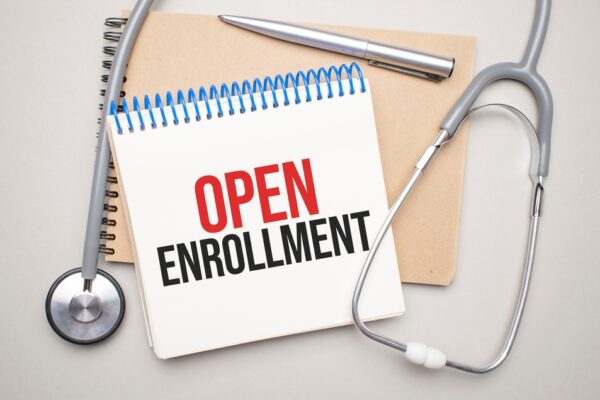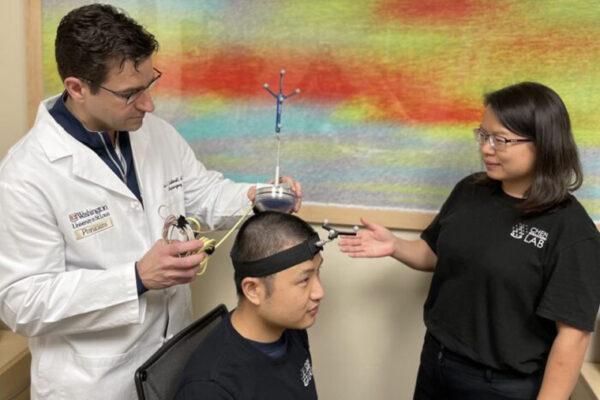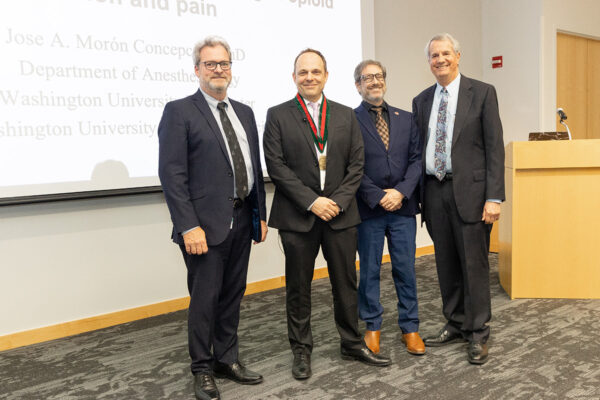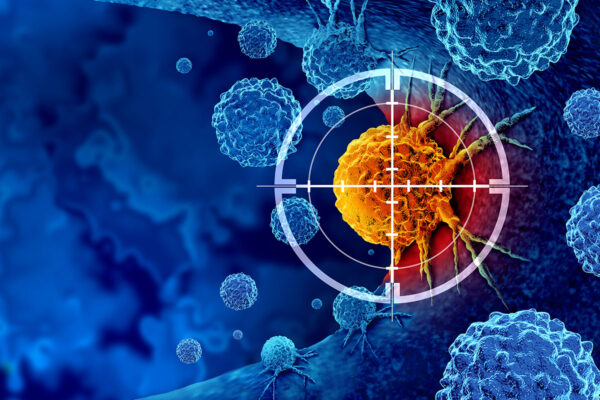Cooper named director of pediatric rheumatology and immunology division
Megan A. Cooper, MD, PhD, an internationally recognized physician-scientist in pediatric immunodeficiencies and immune dysregulation, has been named director of the Division of Rheumatology & Immunology in the Department of Pediatrics at the School of Medicine.
Open enrollment privacy concerns
During this open enrollment season, parents should consider privacy implications when adding their adult children to their health insurance plan, said a health insurance expert at Washington University in St. Louis.
Device for noninvasive brain biopsies via blood draw moves closer to market approval
A device aimed at enabling physicians to perform noninvasive blood-based biopsies in adults with brain tumors has received Food and Drug Administration “Breakthrough Device” designation. The device includes Washington University technology.
Robertson to study amino acid transporters
Janice Robertson, of the School of Medicine, received a two-year $155,500 grant from the National Institute of Neurological Disorders and Stroke, part of the National Institutes of Health (NIH).
Moron-Concepcion named Mallinckrodt Professor of Anesthesiology
Jose Moron-Concepcion, a professor of anesthesiology, of neuroscience and of psychiatry, was installed recently as the Henry Elliot Mallinckrodt Professor of Anesthesiology at the School of Medicine.
Key Medicare payment model fails to improve mental health
A widespread Medicare program that aims to improve health care and lower costs by providing financial incentives to doctors and hospitals resulted in no improvements in mental health care, according to a study by researchers at Washington University School of Medicine and the Yale School of Public Health.
Fagan receives lifetime achievement award from Alzheimer’s Association
Anne Fagan, an internationally recognized expert on fluid biomarkers of Alzheimer’s disease and a professor of neurology at the School of Medicine, has been named the 2023 recipient of the Khalid Iqbal Lifetime Achievement Award by the Alzheimer’s Association.
Epigenome’s role in cancer revealed in new study
Scientists at the School of Medicine have analyzed the epigenomes of tumor cells across 11 cancer types and revealed important roles for this regulatory system of the genome in the way cancer forms, grows and spreads.
Student addresses Sierra Leone HIV epidemic in Lancet
Samuel Kizito, a PhD student in public health sciences at the Brown School, co-authored a correspondence published in The Lancet addressing the HIV epidemic among adolescents in Sierra Leone.
Wearable tech for contact tracing developed
An interdisciplinary team of WashU researchers developed CATCH, a potentially powerful automated tool for mitigating the spread of infectious diseases among front-line health-care workers.
Older Stories









